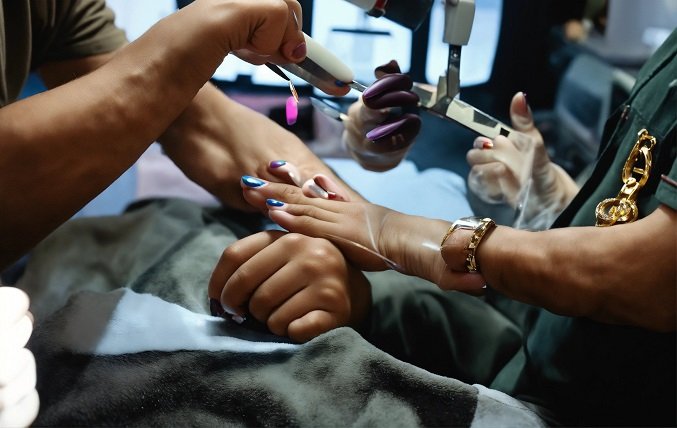Introduction
The grooming practices of internet predators have put adolescents’ safety and wellbeing at greater risk in the digital era. The word “grooming” refers to a variety of deceptive strategies used by predators to gain the trust of children in order to further their own evil objectives. The “Whopper Whopper” grooming minors whopper whopper problem is a troubling trend that has garnered notice recently and has exposed the startling level of youngsters being exploited online. This blog article offers insights into protecting children in the digital sphere, investigates the complexities of the Whopper Whopper phenomena, and goes further into the dynamics of grooming minors.
Unveiling the Tactics grooming minors whopper whopper
Predators utilize a technique called grooming to control and take advantage of children for sex or other abusive activities. This deceptive practice entails gradually developing rapport, trust, and an emotional bond with the victim. To groom their victims, predators frequently use psychological manipulation, deceit, and coercion.
The Vulnerability of Minors in the Digital Age
Because they have more access to the internet and social media in this day and age, minors are more susceptible to grooming. Predators can easily reach potential victims and remain anonymous through online exchanges. Furthermore, minors are especially vulnerable to manipulation since they do not have the maturity or awareness to identify grooming techniques. Their susceptibility may also be increased by elements like curiosity, low self-esteem, and loneliness.
The Rise of the Whopper Whopper Phenomenon
The term “Whopper Whopper phenomenon” is a particular type of internet grooming in which predators trick kids into having sex or sharing graphic material by employing dishonest strategies. “Whopper Whopper” refers to the practice of fabricating or exaggerating tales in order to control and take advantage of victims. This tendency is becoming more and more popular on messaging apps and social networking sites, which is extremely dangerous for children’s online safety.
Tactics and Techniques
In order to groom and take advantage of their victims, predators involved in the Whopper Whopper phenomena use a variety of strategies. These could include fabricating identities and personas to trick minors, posing as someone with similar interests and experiences to build rapport, enticing minors into sexually explicit interactions or conversations, offering material rewards or attention in exchange for compliance, or gaslighting and manipulating victims into doubting their own feelings and perceptions.
Psychological Impact on Victims
For those who are groomed, the psychological repercussions can be deep and long-lasting. Adolescents who have been influenced by others may feel guilty, ashamed, or deceived. They could experience emotional trauma, low self-esteem, and trust concerns.
Legal Ramifications and Challenges
It is a severe crime with legal ramifications to groom youngsters. Although laws differ from jurisdiction to jurisdiction, many nations have laws that make it illegal for anybody to groom children for the purpose of sexual exploitation or abuse. However, because of the complexity of online contacts and the difficulties of gathering evidence, prosecuting incidents of grooming can be tough.
The Role of Technology in Grooming
Technology is a big help when it comes to grooming habits. Social media sites, messaging applications, online gaming platforms, and other digital technologies are used by predators to establish contact with possible victims. Because of the internet’s accessibility and anonymity, predators may more easily hide their identities and take advantage of children without anybody noticing.
Recognizing Grooming Behaviors
Recognizing the warning signals of grooming is crucial for parents, caregivers, educators, and minors themselves. Excessive secrecy about online activities, abrupt behavioral or emotional changes, receiving gifts or money from strangers without invitation, spending too much time online—especially late at night—withdrawing from friends and family, and expressing feelings of fear, anxiety, or discomfort about interactions with strangers are some warning signs to be aware of.
Empowering Minors and Communities
A multifaceted strategy incorporating education, awareness, and cooperation is needed to prevent grooming. From an early age, minors should get education about consent, healthy relationships, and internet safety. In order to keep lines of communication open and keep an eye on their children’s online activity, parents and other caregivers are essential. Resources and assistance can also be given by schools and community organizations to help minors identify and reject grooming activities.
Healing and Recovery
It is crucial to offer thorough support and resources to people who have been groomed in order to facilitate their healing and rehabilitation. This can entail having access to therapy, counseling, support groups, and resources for legal advocacy. Establishing secure, accepting environments where survivors can talk about their experiences, get affirmation, and get the support they need to start over is essential.
Conclusion
The Whopper Whopper phenomena and the more general problem of kids being groomed online pose serious obstacles to ensuring the safety of youth in the digital age. Together, we can safeguard children from exploitation and abuse by being aware of the strategies and tactics employed by predators, identifying the warning signs of grooming, and putting preventive measures in place. The protection and safety of our kids and teenagers must come first, both online and offline.
FAQ
What should I do if I suspect that a minor is being groomed online?
It is critical to respond quickly if you believe a youngster is being groomed online. Inform the proper authorities—such as child protective services or police enforcement—of your concerns. Keep a record of any supporting documentation you have, such as screen grabs from discussions or interactions. Give the child materials to help them and encourage them to ask a responsible adult for support.
How can I protect my child from online grooming?
Set boundaries and restrictions for internet use, teach your child about online safety, and keep a tight eye on their online activity to prevent your child from being groomed online. Promote candid dialogue and educate them on the telltale indicators of improper grooming. To reduce exposure to possible threats, make use of social media privacy settings and parental control tools.

